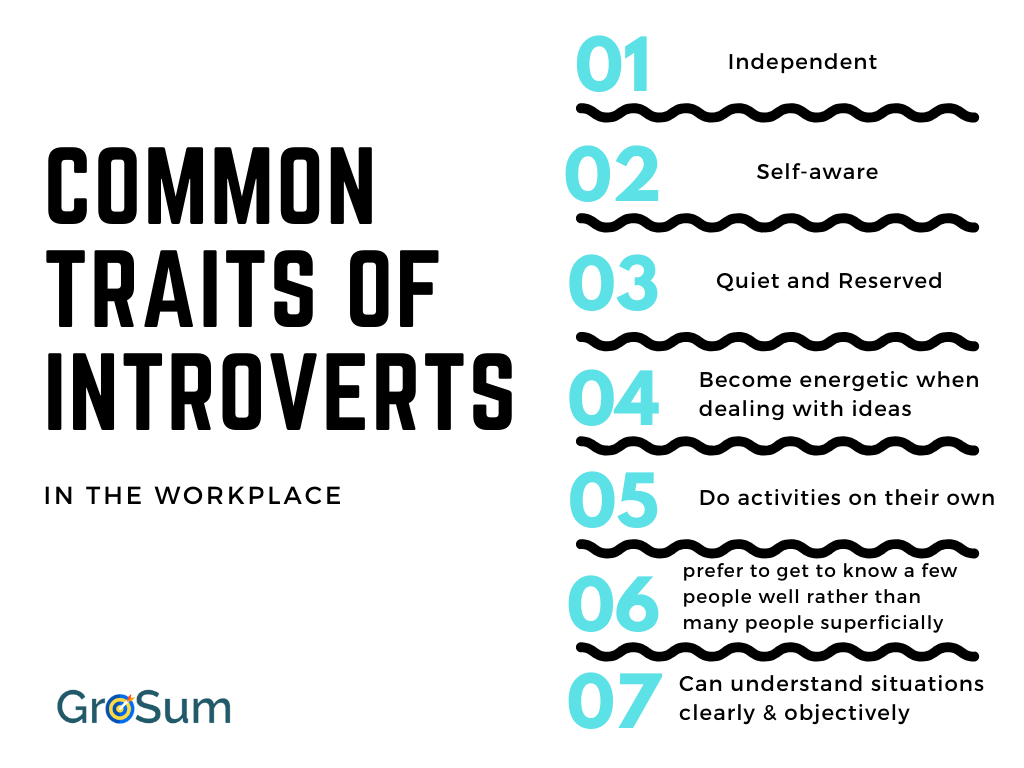The combination of introversion and remote teams can be daunting for both the employees and their team leaders.
While many understand that they should not ignore this situation, it can be challenging to know where to start. At the same time, overstepping boundaries and not providing adequate support are both real dangers when working with introverted remote team members.
With Carl Jung’s theory of personality types, it is estimated that approximately 50% of the population are introverts. This means that there is a high chance that at least half of the members in any given team are introverted.
In this article, we will explore some tips on how to best support and engage your introverted team members, allowing to build a remote team where everyone succeeds.
Let’s get right into it.
The magical power of introverts
While young people sometimes wish they could be more outgoing, there is a lot of value in being an introvert. In fact, many of the world’s most successful people throughout history are introverts.
Some of the qualities that make introverts great employees include the following.
They tend to be very observant.
Introverts take their time to notice and process their surroundings. This means they’re usually excellent at spotting things that others might miss.
This quality can be precious in a remote team setting, where it’s often difficult to get a read on people and understand what’s going on.
They tend to be great listeners.
Introverts are often excellent listeners, which can be a massive asset in remote team settings.
Since it can be challenging to build rapport and trust with teammates you never see face-to-face, having team members who are good at listening can be a huge help.
They tend to be independent.
Introverts are often very independent workers, which can be a great asset in remote team settings.
Since remote teams often rely heavily on teamwork and collaboration, it’s essential to have team members who can work well independently.
They tend to have a lot of focus and concentration.
Introverts often have unstoppable focus and concentration, which can be a great asset in remote team settings.
Since remote teams often have to rely on written communication, it’s vital to have team members who can pay attention to detail and write clearly.
They tend to be detail-oriented.
Introverts often have an excellent eye for detail, which can be a valuable asset in remote team settings.
Since it can be challenging to communicate effectively in a remote setting, it’s essential to have team members who can pick up on small details and act on them.
Managing Emotional Culture in Remote Teams
Signs an employee falls on the introverted side
There are a few key signs that an employee may be introverted, some of which include the following.
They prefer to work alone.
One of the most obvious signs that an employee is introverted is that they prefer to work alone.
If you notice that an employee always seems to be working by themselves and doesn’t seem to interact much with other team members, there’s a good chance they’re introverted.
They take longer to process information.
Another sign that an employee is introverted is that they take longer to process information.
While this might initially be seen as a negative, it’s a great sign in most situations. This is because introverts are usually very observant and take their time to notice things others might miss.
They’re more likely to be introspective.
Another sign that an employee is introverted is that they’re more likely to be introspective. This means that they tend to spend a lot of time thinking about their thoughts and feelings.
Depending on the job position, this quality can be positive or negative. For jobs that require a lot of analysis and problem-solving, introspection can be a great asset.
However, introspection may not be as valuable for jobs that require more extroverted qualities, such as sales or customer service, where pleasing your customers is critical.
They’re not as likely to seek out social interaction.
Another sign that employees are introverted is that they’re not as likely to seek out interaction with other employees. This means they’re more likely to stay quiet in group settings and may not feel as comfortable networking or socializing with co-workers.
Again, this quality can be positive or negative depending on the job position. For jobs that require more independent work, introverts may be more successful.
However, for jobs that require a lot of social interaction, introversion might become an issue.
That said, do not confuse being introverted with someone having a series of bad days, especially if one is just starting a new job. We all need some time to adjust to changes and get into a routine.
To that end, and if it makes sense for your company structure, providing your employees with ways to scientifically measure their levels of introversion (e.g., the Myers-Briggs Type Indicator test) can be beneficial.
This Entrepreneur and CEO Shares Tips for Building Strong Remote Teams
Supporting and engaging introverted people in remote teams
There are a few key ways to support and engage your introverted employees. Let’s have a look at the most common ones.
Focus on the individual.
While there is a time and a place for team-building activities, it’s also essential to focus on the individual. This is especially true for introverts, who may not feel as comfortable participating in group activities.
Make sure you take the time to get to know your introverted employees personally. Ask them about their interests and hobbies outside of work, and try to find ways to connect with them.
It would help if you also were using career assessment quiz templates as part of your performance review process to get regular feedback from your employees about how they’re doing and what they need from you.
This ensures that you’re always focused on the individual and their needs, rather than just the team’s needs.
You can even make your own aptitude test that focuses on the specific skills and qualities that are important for your team.
Remove any preconceived notions you might have.
Sometimes, starting with our preconceived notions can hold us from truly understanding and connecting with someone.
If you have any preconceived notions about introverts, it’s essential to try to remove them.
For example, one of the biggest misconceptions about introverts is that they’re shy. However, shyness and introversion are two very different things.
Introverts may not be as outgoing as extroverts, but that doesn’t mean they don’t like social interaction.
They may prefer deeper, one-on-one conversations over small talk.
Another common misconception about introverts is that they don’t like working in teams. Again, this isn’t necessarily true.
While introverts may not be as outgoing as extroverts, that doesn’t mean they don’t like working in teams. They might just prefer to work in smaller groups or pairs rather than in large teams where things are more chaotic.
While traditionally managers might have thought that an introverted person might have been daydreaming about their weekend plans or finding novel ways to waste time at work, that’s typically not the case.
Getting rid of any preconceived notions about introverts will help you be more open-minded and understanding when working with them.
Set boundaries and stick to them.
This should apply to all employees, not just introverts. But it’s especially vital for introverts, who may need more time to recharge after social interactions.
It’s also important to set boundaries with your employees about when and how one can reach them outside of work hours. If you know an introverted employee, try to respect their need for alone time and give them the space they need to recharge.
This doesn’t mean you can never contact them outside of work hours, but you should only do so if it’s really necessary. Sticking to these boundaries will help your introverted employees feel respected and valued, will aid in improving team dynamics and help prevent burnout.
Encourage them to step out of their comfort zone.
While it’s important to respect an introvert’s need for alone time, you should also encourage them to step out of their comfort zone from time to time.
One of the best ways to do this is to give them opportunities to work on projects that interest them.
They’ll be more likely to be engaged and motivated since they’re working on something they care about.
You can also encourage your introverted employees to participate in team-building activities, but make sure you give them plenty of notice and allow them to opt out if they’re not comfortable.
Giving introverts a chance to grow out of their shell might even help them become more successful in their career.
Set up a positive feedback system.
The key to creating a virtual team that works is to have a positive feedback system.
This is especially important for introverts, who typically need more reassurance than extroverts.
Note that a positive feedback system doesn’t have to be complicated. You can set up a regular check-in process to give your employees specific, actionable feedback about their work.
Another idea is to use SOP templates. This means that everyone is on the same page and knows what’s expected of them, so there are no surprises.
SOP templates also help ensure that everyone receives the same level of feedback, regardless of their personality type.
Regular check-ins and positive feedback will help your introverted employees feel appreciated and valued, and it will also help them stay motivated and engaged in their work.
The 10-step process to managing an introverted team
Here’s a quick process you can run in your organization to help you support and engage your introverted employees:
- Assess your team’s working style preferences.
- Encourage employees to take time for themselves.
- Encourage and support employee-led initiatives.
- Promote a culture of open communication.
- Respect employees’ need for alone time.
- Schedule regular one-on-one check-ins.
- Encourage employees to share their ideas and feedback openly.
- Create opportunities for socializing and networking.
- Celebrate employees’ successes publicly and privately.
- Be an advocate for your introverted team members!
Following these steps will help you create a more supportive and engaging environment for your introverted team members.
Conclusion
Supporting and engaging introverts in remote teams is essential to the whole group’s success.
With a well-thought-out and executed plan, you can ensure that your introverted team members feel supported, appreciated and engaged. Sometimes, this might be all that’s needed to bring out their best work and help the team move forward and succeed.







